Global Humanitarian and Digital Transformation Case Study

Summary:
Our client, one of the world’s largest social organizations, faced significant challenges in managing humanitarian projects across 100+ countries. The absence of a unified system resulted in inefficiencies in project tracking, resource allocation, and risk oversight. To address these issues, QPunch was implemented to centralize project management, automate reporting, and enhance collaboration. By integrating interactive dashboards, risk-aware workflows, and automated escalation mechanisms, the solution provided real-time insights and improved strategic decision-making. This case study outlines the key challenges faced, the client’s requirements, the solutions provided, the implementation approach, and the outcomes achieved.
Challenges:
Manual and Inefficient Reporting
- Dependency on Excel sheets led to inconsistent and delayed communication with stakeholders.
- Fragmented data sources made it difficult to generate comprehensive reports.
Lack of a Centralized System
- No unified platform to monitor projects like the Global Medical Aid System (GMAS), ERP, or CRM across multiple regions.
- Information silos prevented effective coordination between global teams.
Limited Risk Oversight
- Risks related to scope, time, and quality were not systematically logged or categorized.
- Absence of a structured workflow resulted in delays in issue resolution.
Resource Bottlenecks and Utilization Issues
- No real-time visibility into team workload and availability.
- Challenges in balancing project demands with resource capacity.
Limited Global Visibility
- Inability to track country-wise progress and generate real-time executive reports.
- Lack of a unified view for stakeholders to monitor global project rollouts.
Requirements:
The client outlined the following key requirements to address the identified challenges:
- A dynamic dashboard displaying country-wise progress and key milestones.
- A structured view listing project status across all countries with critical KPIs.
- A reporting system with PDF exports including project details, resource utilization, and risk insights.
- A framework for categorizing risks under Scope, Time, and Quality with RAG (Red, Amber, Green) status indicators.
- A system for logging actual vs. planned hours to improve workforce utilization.
- Bulk import and real-time synchronization of tasks and epics from Jira.
- An automated notification system for overdue tasks, ensuring accountability and timely resolution.
Solution:
To address challenges like manual reporting, fragmented systems, limited risk oversight, resource bottlenecks, and lack of global visibility, the implementation followed a structured approach. Data migration ensured accurate Jira imports with automated field mapping and validation. Dashboards were configured with an interactive world map and seamless navigation. Risk workflows were customized with milestone-linked categories and RAG status indicators. Escalation processes integrated HR charts and automated overdue task alerts. Lastly, user training included stakeholder workshops and hands-on sessions to maximize platform adoption.
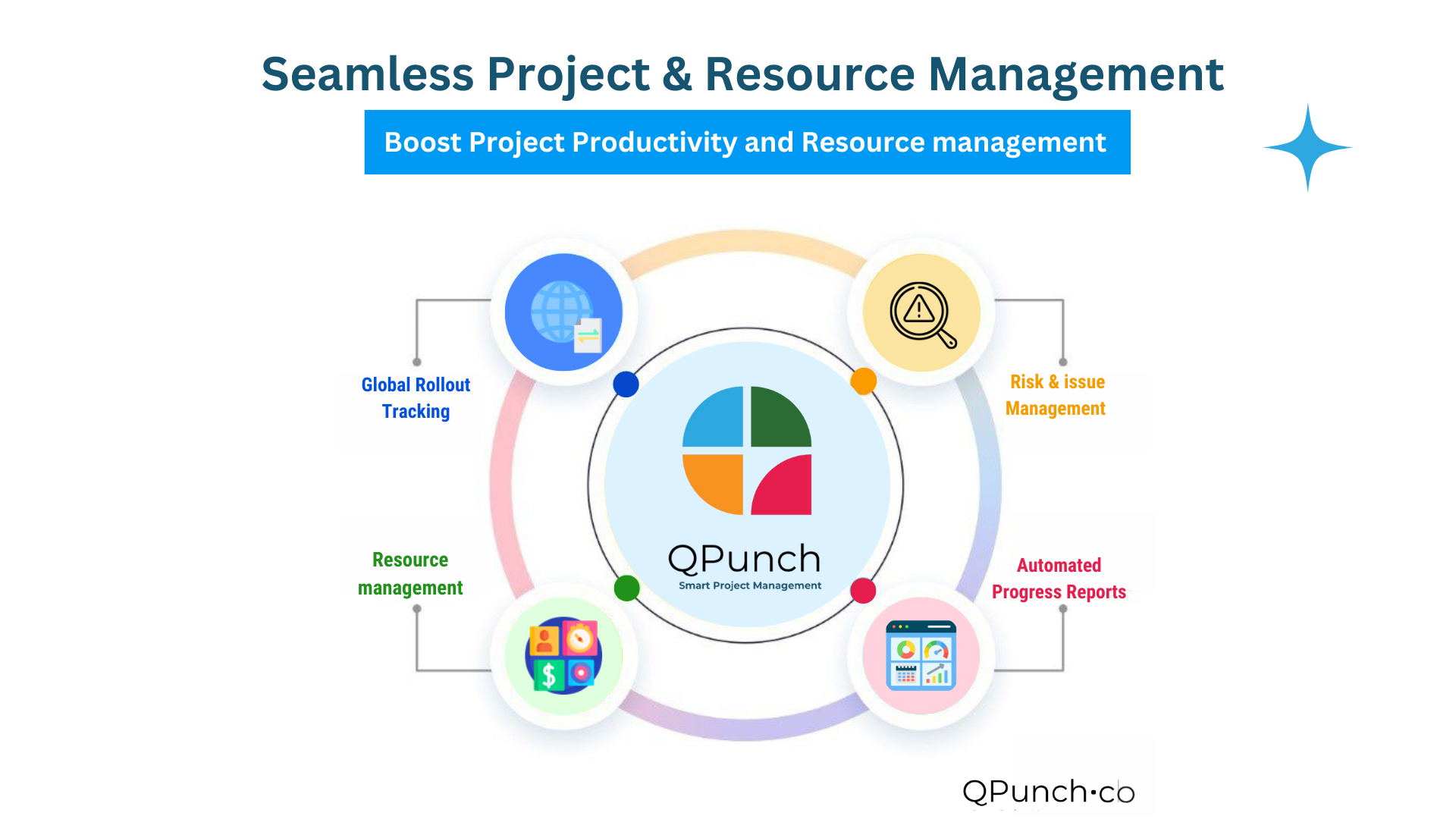
Implementation Approach:
Solution for Global Rollout Tracking: Interactive World Map and Global Rollout Table
QPunch introduced an interactive world map to display country-wise progress percentages and target dates, with drill-down capabilities to a Global Rollout Table.
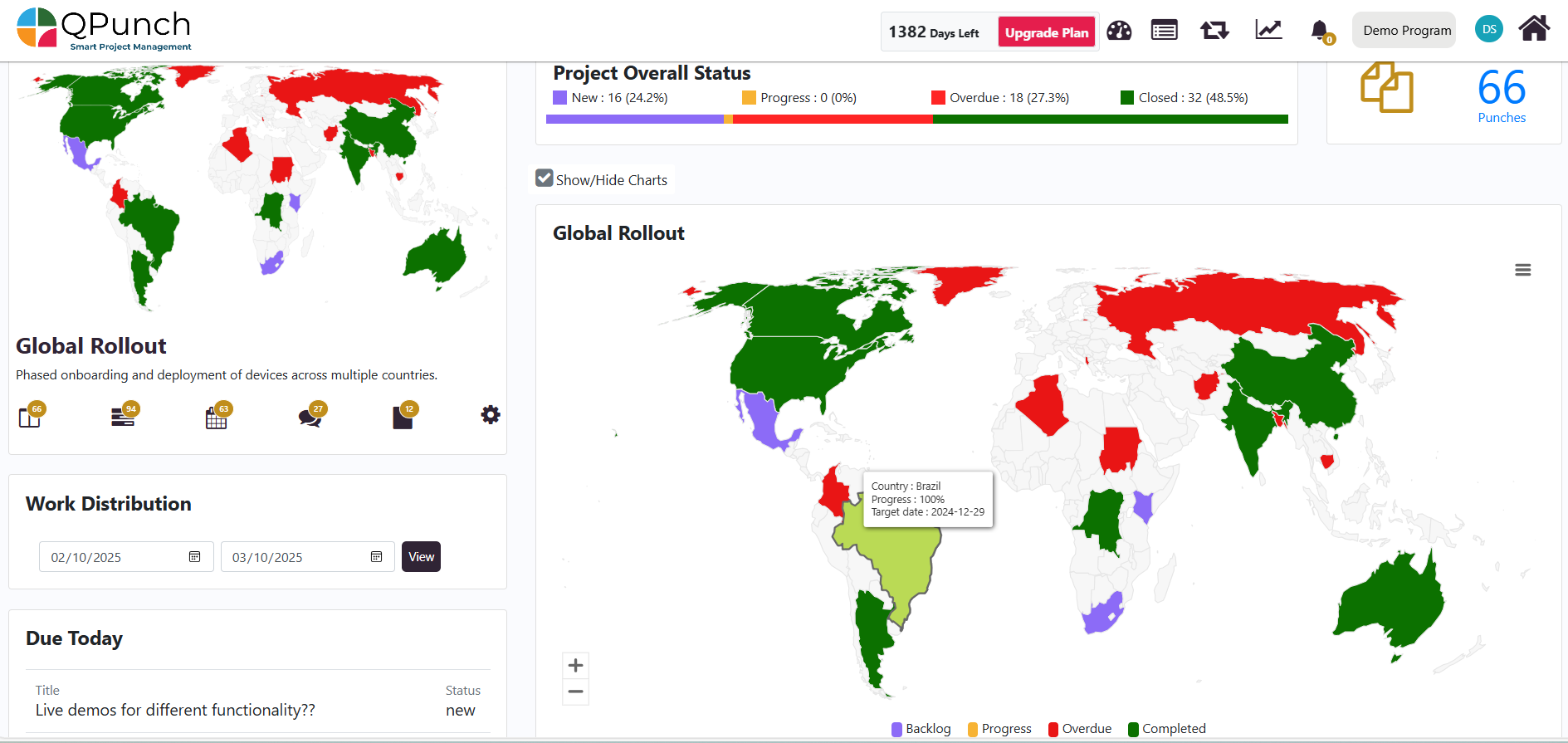
The table lists all countries with progress %, status, and additional fields like Targeted vs. Achieved Medical Aids Distribution for comprehensive tracking.
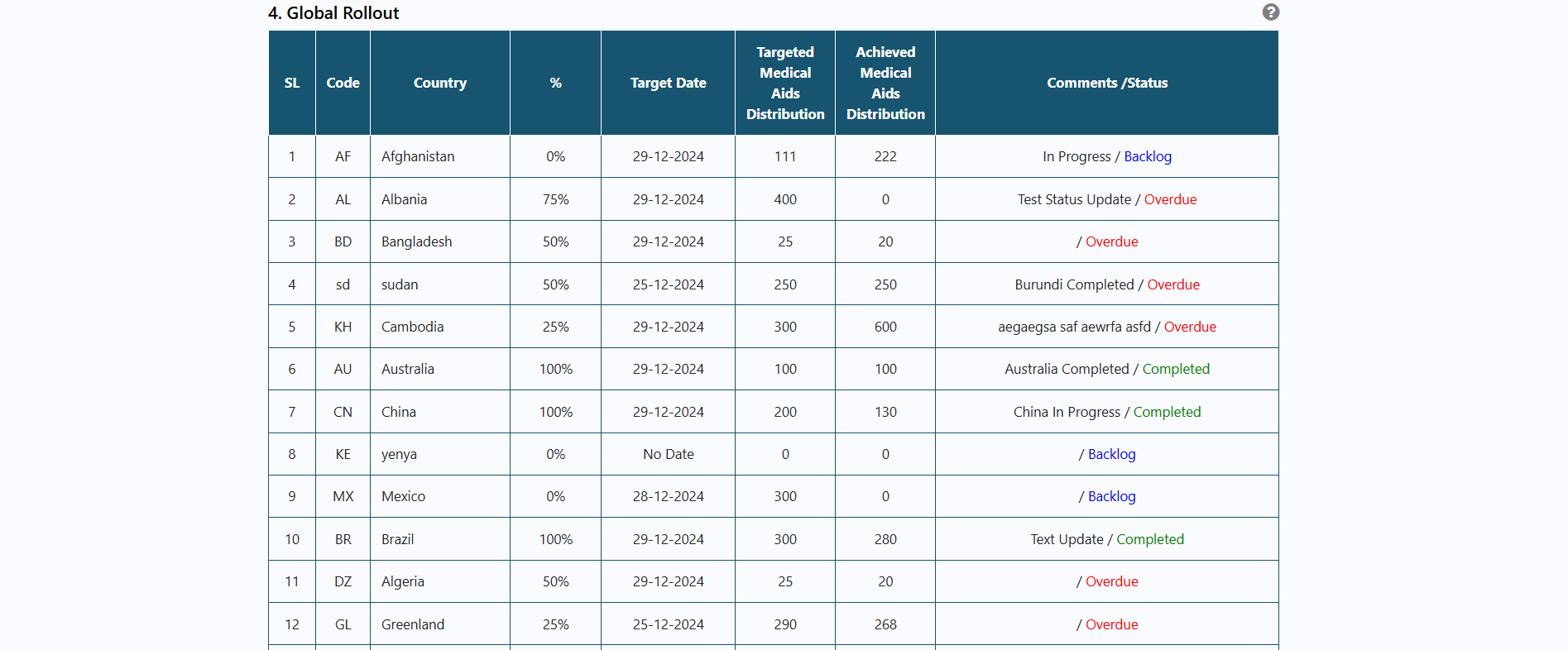
Solution for Executive Reporting: Automated Progress Reports
QPunch provided automated executive Progress report which include key metrics such as Project Details (Project name, Project number, manager and overall progress with RAG Metrics) , Brief Update about the Project and Team Utilization.
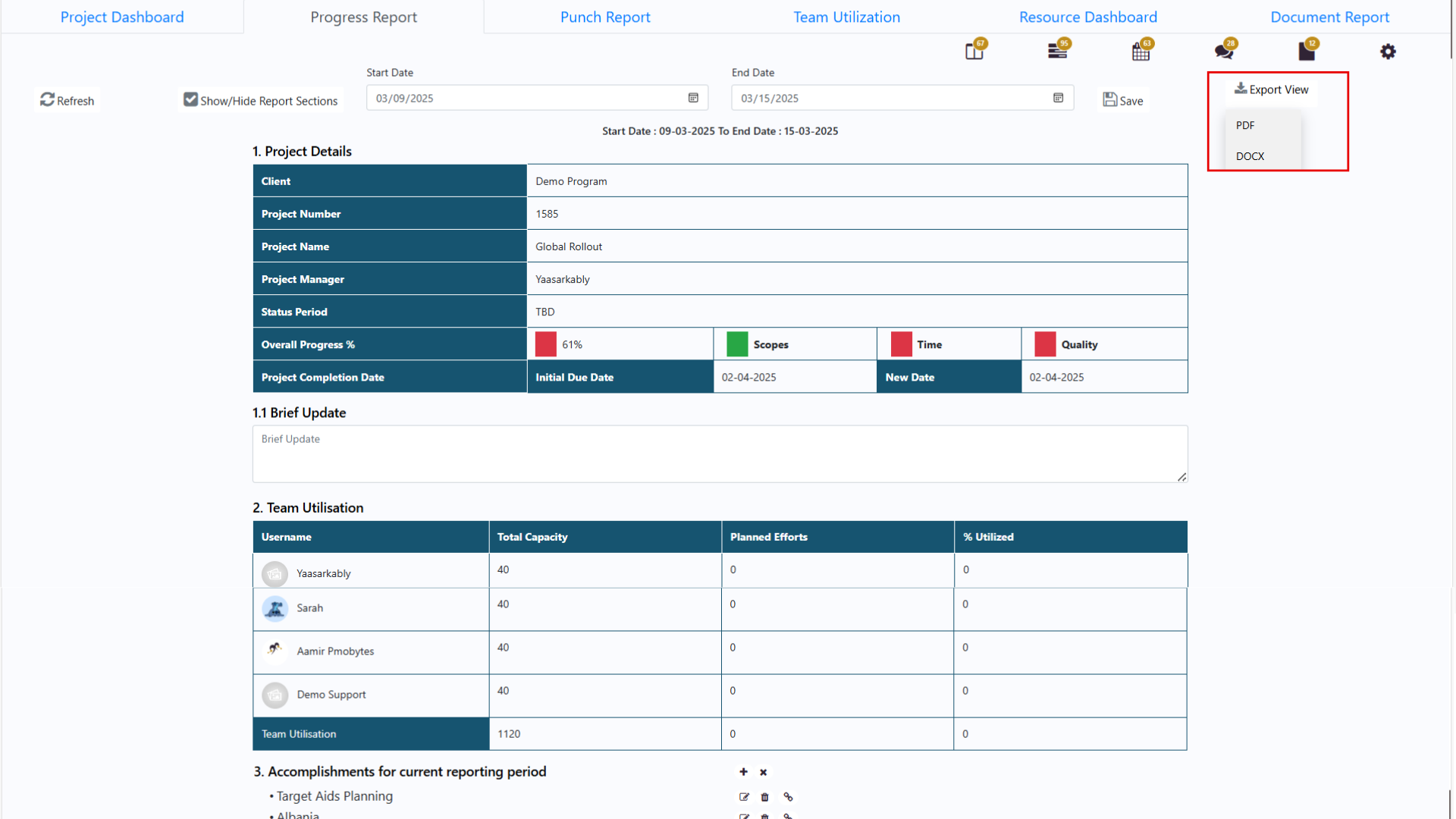
and Risks/Issues, and what are the planned and accomplished task for the set duration offering a comprehensive overview of project performance report for the executives with PDF export functionality.
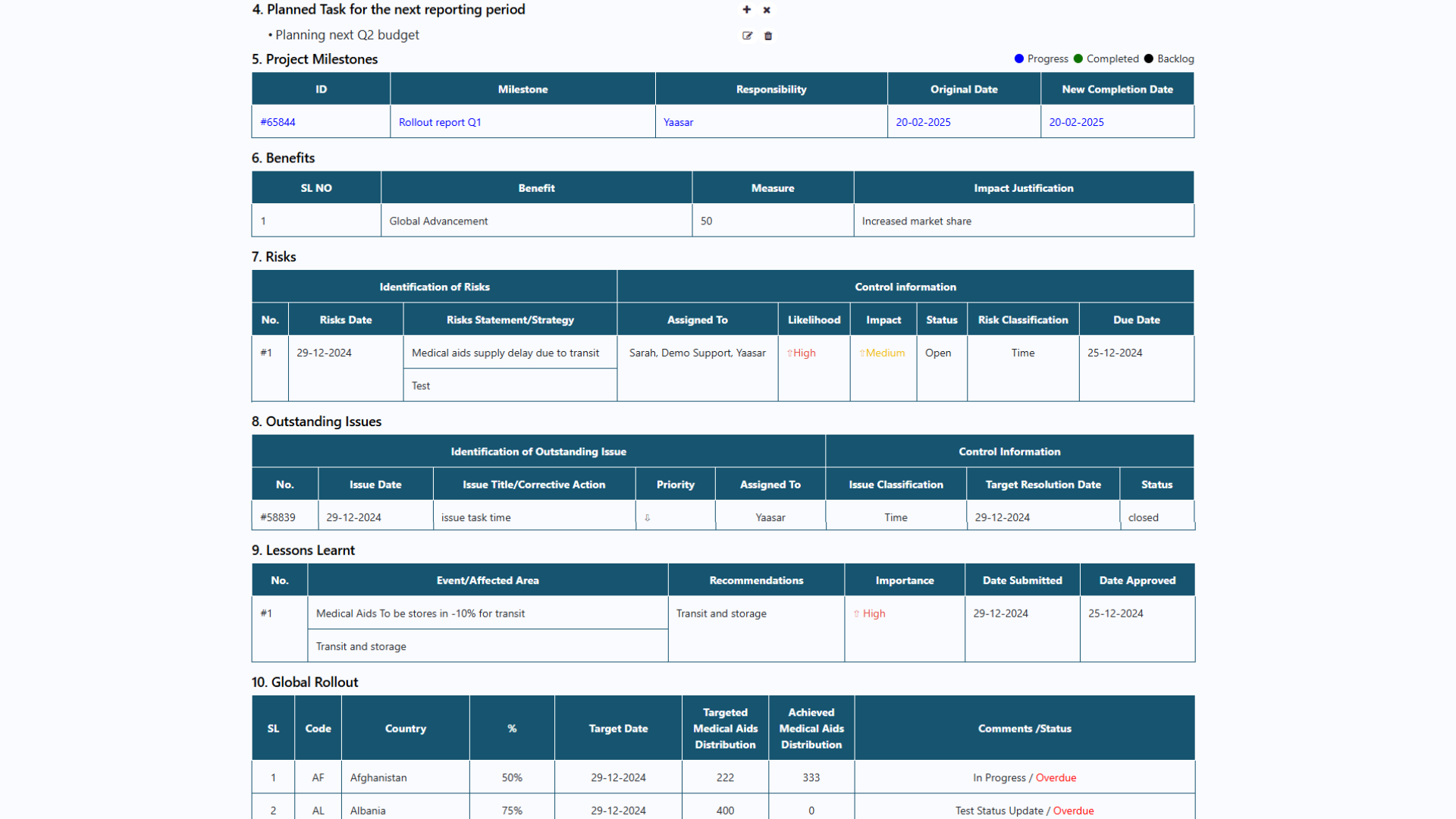
Solution for Risk & issue Management with Classification and RAG Status
QPunch provided risk register from which users can log, manage, prioritize and categorize the risks under (Scope, Time, or Quality) before they encounter them during the project so that its contained and avoided and know how to tackle it.
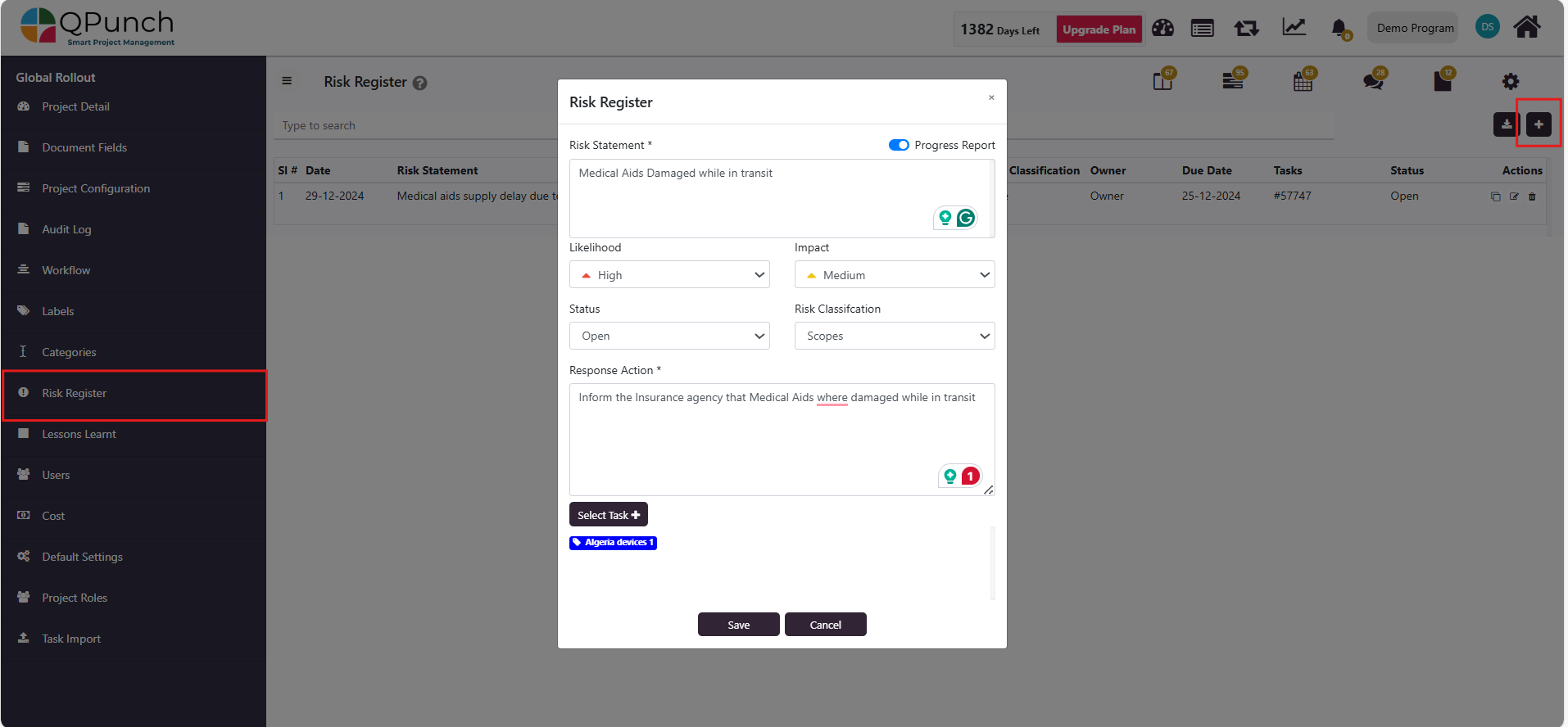
and once an Issue is encountered, they can log the Issue in the issue task from Kanban board which the users can manage, prioritize and categorize them under Scope, Time, or Quality,
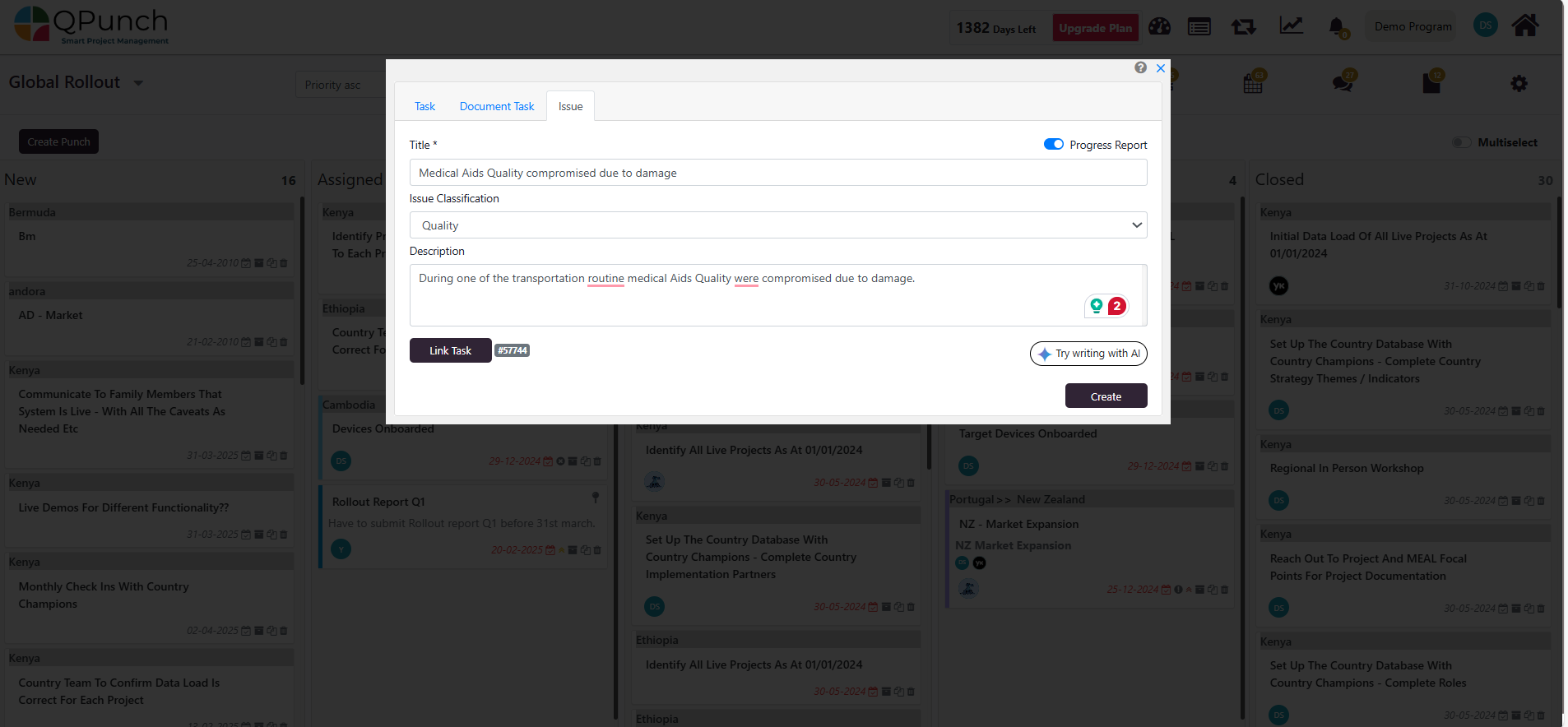
Now, once the Risk and Issues are logged, they can view them in the progress report > Project details with RAG (Red, Amber, Green) status classifications. And also in This ensures clear visibility and categorization of risks/issues to manage and mitigate them effectively.
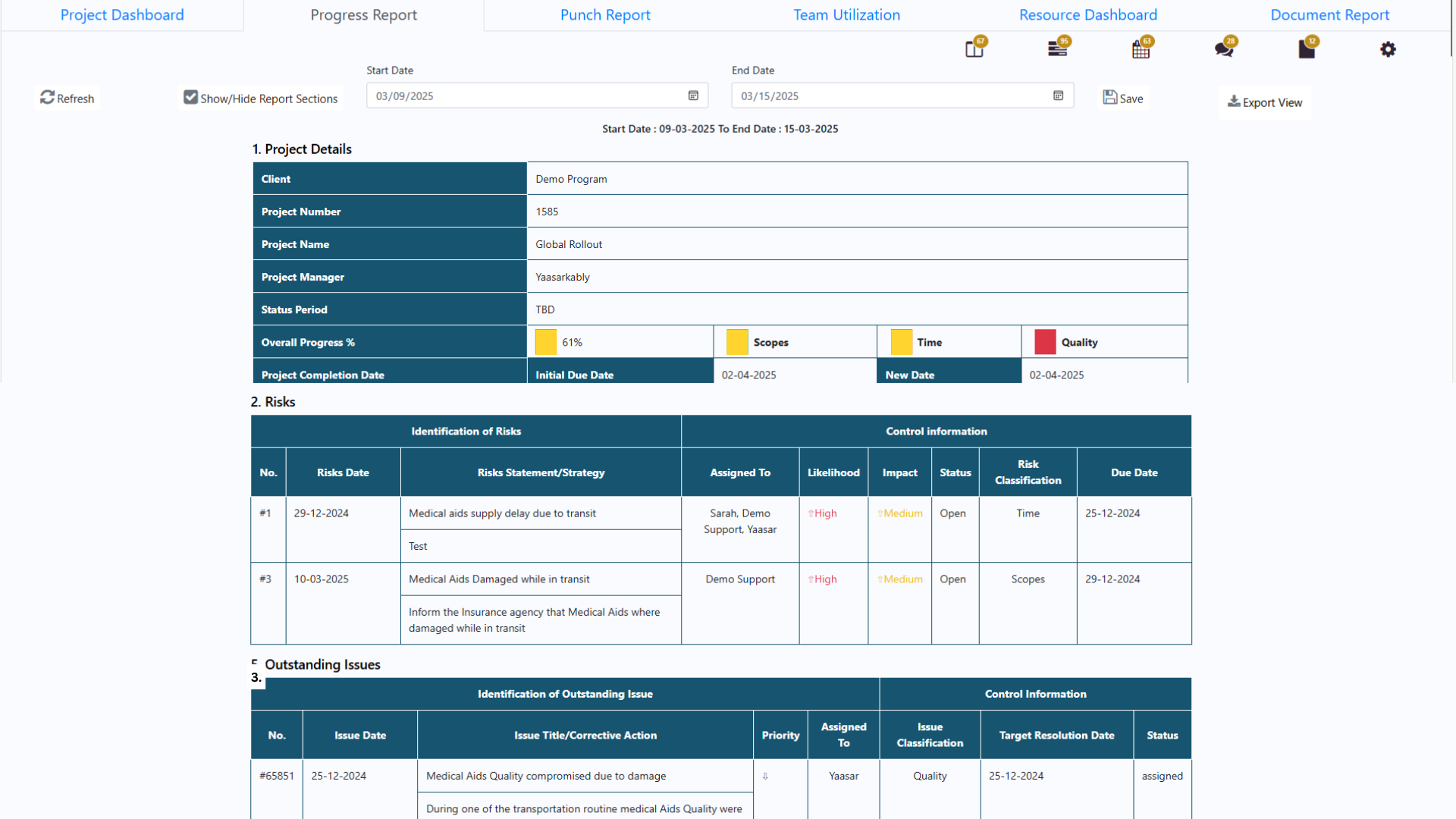
Solution for Resource Utilization: Resource Tracking
QPunch provided worklog through which the users can log, manage and track there Actual vs. Planned Hours, ensuring accurate resource utilization and capacity planning
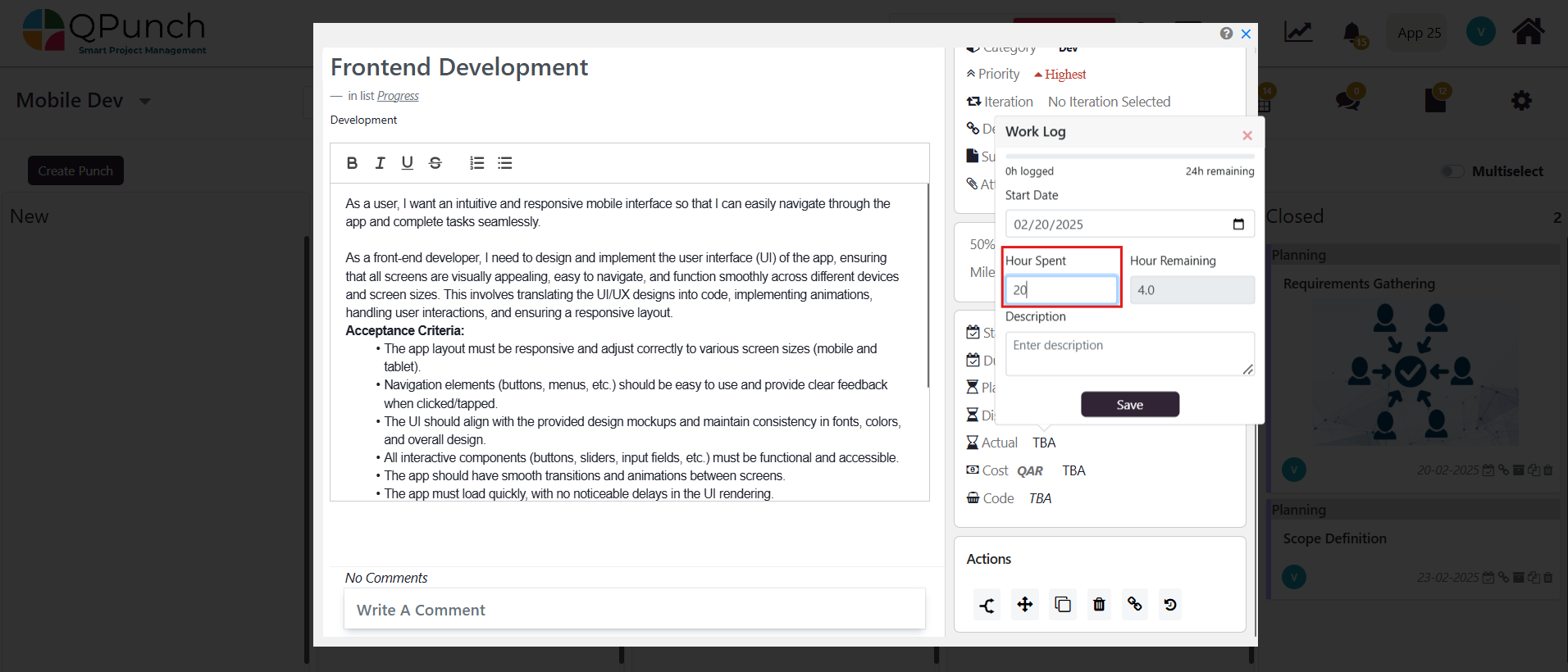
offering a comprehensive overview of user’s performance to the executives through Resource Utilization report.
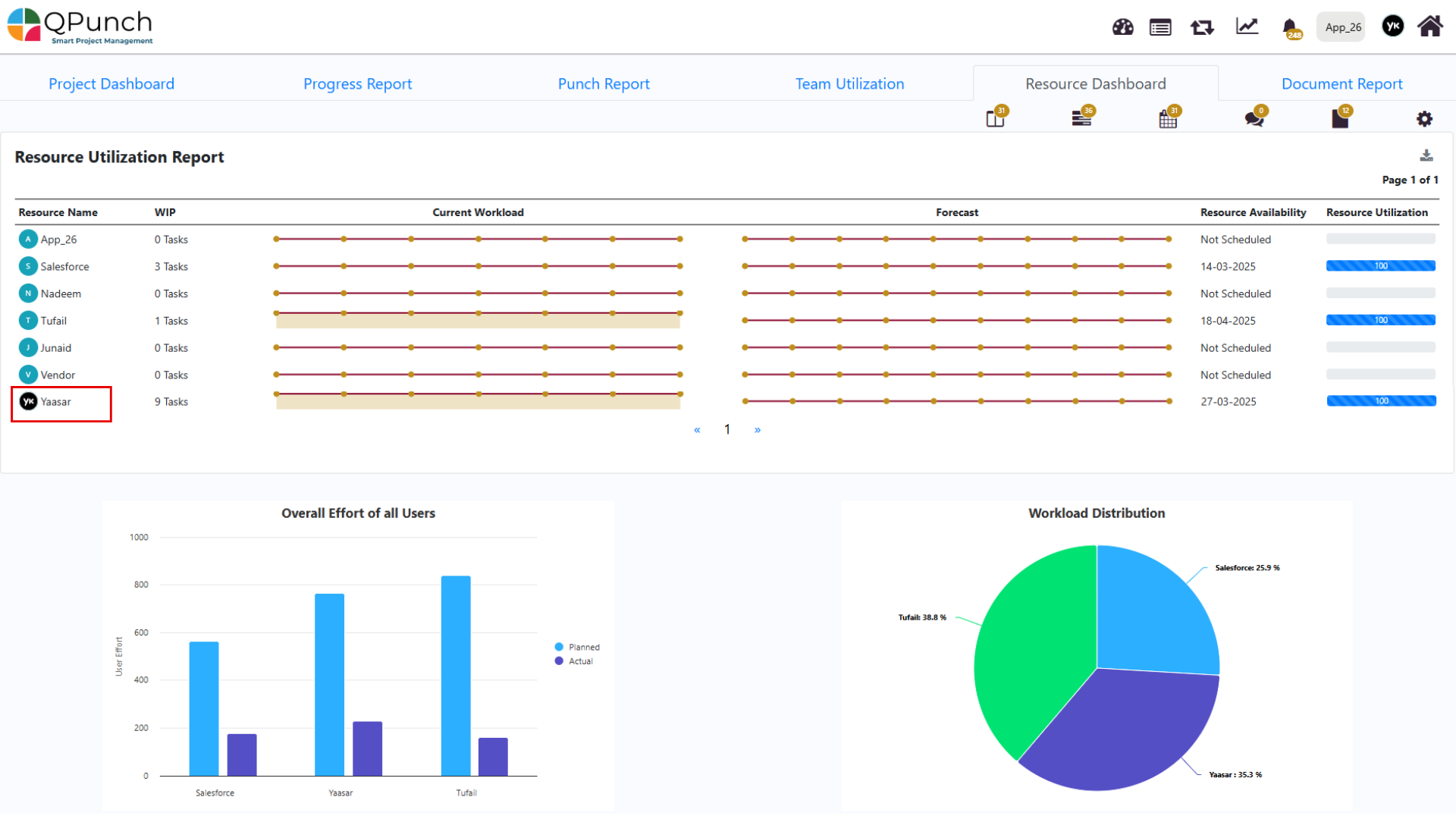

Solution for Seamless Task Import: Gantt MS Project File Import
QPunch Seamlessly Import task from the existing Jira setup with MS Project File Import, enabling bulk import of tasks/epics with real-time data mapping.
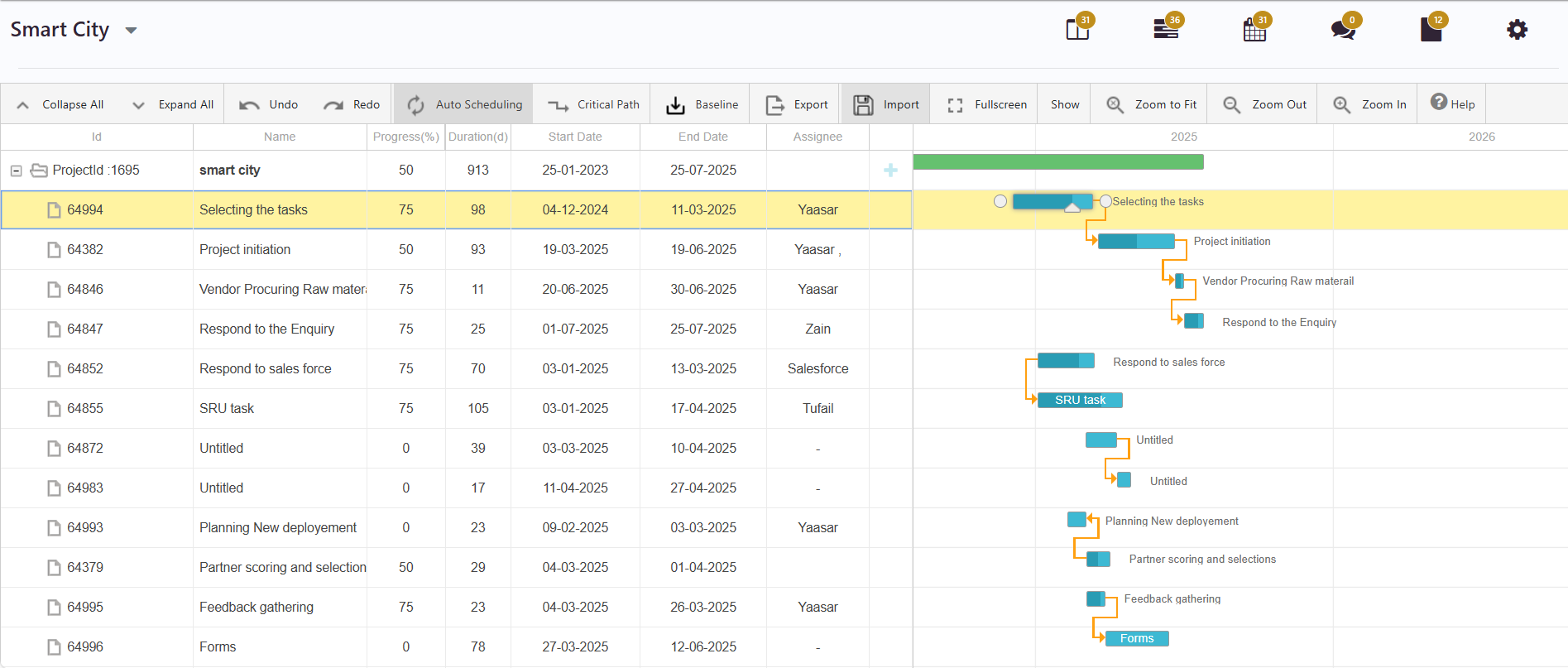
Solution for Accountability: Escalation Management
QPunch automated notifications to line managers and the user for overdue tasks, ensuring accountability and effective task management. Email notifications included task details like task name, due date, assignee, and comments, with a 2-days escalation duration for the user and 5-day escalation duration for both the line manager and the user.
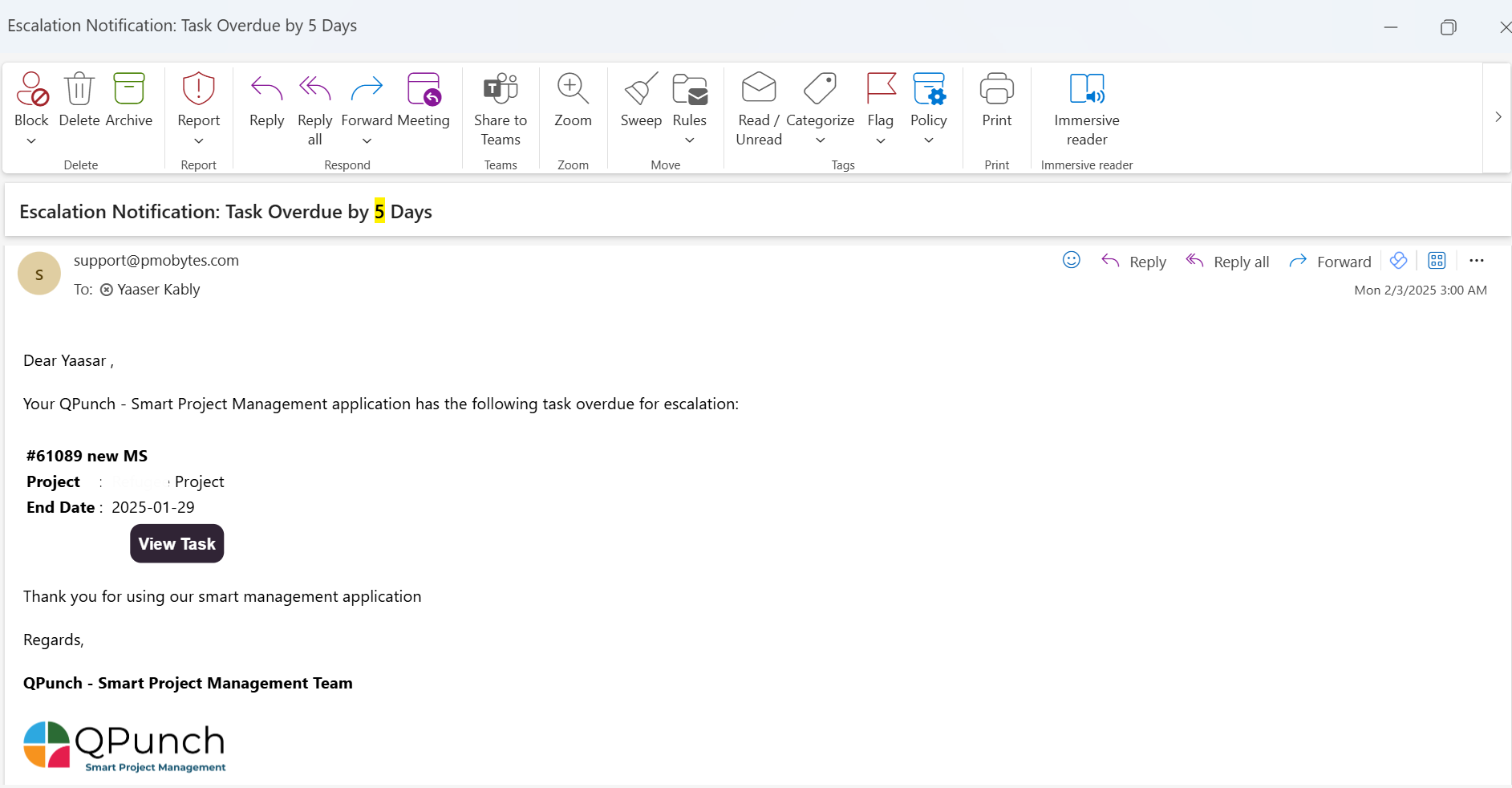
Conclusion
By deploying QPunch, the client achieved significant improvements in global project management, including:
- 50% Faster Reporting: Automated dashboards replaced manual reporting processes.
- 30% Improved Resource Utilization: Real-time tracking enabled better workload balancing.
- Enhanced Compliance: On-premises hosting ensured data security and regulatory adherence.
- Strategic Decision-Making: Interactive dashboards and automated reports empowered executive-level planning.
- Increased Accountability: The escalation mechanism reduced overdue tasks by 40%, ensuring timely project execution.
QPunch successfully transformed the client’s approach to managing global humanitarian projects through digital transformation and project management solutions, fostering efficiency, collaboration, and data-driven decision-making across a global landscape.
Address On Maps
Ready To Get Started with Smart Project Management?
